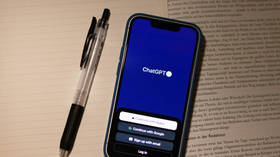Prestigious book prize winner used ChatGPT

Japanese author Rie Kudan has admitted she used ChatGPT when creating her futuristic novel that recently won the country’s most prestigious literary award. According to Kudan, the use of generative AI helped her unlock her potential.
The novel, titled “Tokyo-to Dojo-to” (Tokyo Sympathy Tower) was lauded as “almost flawless” and “universally enjoyable” by some of the judges who awarded it the biannual Akutagawa Prize on Wednesday.
The story revolves around the construction of a high-rise prison tower in a futuristic Tokyo whose architect is dissatisfied with the society of the future, its excessive demand for tolerance and overreliance on artificial intelligence.
During a ceremony following the announcement of the winners of the Akutagawa Prize, the 33-year-old author openly admitted that she made “active use of generative AI like ChatGPT” and that “about five percent of the book quoted verbatim the sentences generated by AI.”
Aside from using it to write her novel, Kudan stated she also frequently confided personal thoughts to the chatbot that she could never talk to a real person about. She noted that some of ChatGPTs responses ended up inspiring dialogue she later featured in her novel.
Kudan went on to say that she intends to keep “good relations” with AI and that the technology has helped “unleash” her creativity.
The author’s confession that she used AI to write her award-winning novel has been met with mixed responses on social media, with some praising her creative use of the developing technology while others have called it undeserving of Japan's top literary prize.
Since the advent of generative AI programs like ChatGPT, concerns have been raised over the ethical use of such technology, which has already been widely employed to write research papers, computer code and movie scripts among other things.
Last year, a group of 1,100 AI researchers, tech luminaries and other futurists, including billionaire Elon Musk and Apple co-founder Steve Wozniak, signed an open letter demanding a six-month moratorium on “giant AI experiments” to come up with guidelines for how the technology should be developed and used.
At the same time, other tech leaders have insisted that such concerns are unfounded, with Meta’s President of Global Affairs, Nick Clegg, stating that current AI models are “quite stupid and far short” of posing any threat to humanity.













